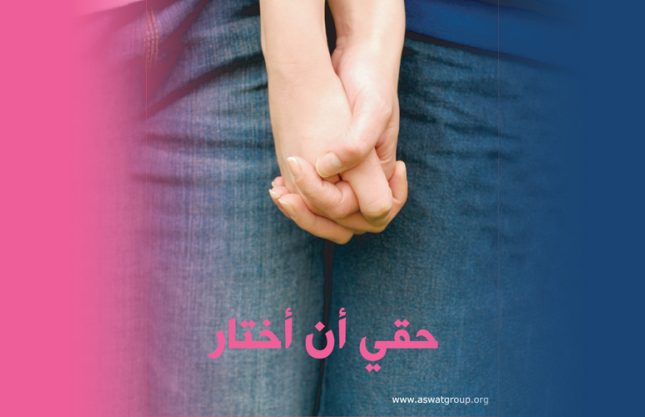This website uses cookies so that we can provide you with the best user experience possible. Cookie information is stored in your browser and performs functions such as recognising you when you return to our website and helping our team to understand which sections of the website you find most interesting and useful.
- Our Impact
- Israel/Palestine- Haifa
Aswat – Palestinian Feminist Queer Movement for Sexual and Gender Freedoms
Aswat is a feminist queer movement for sexual and gender freedom for Palestinian women.

- WHERE
- Israel/Palestine- Haifa
- Issue Area
- Anti-Discrimination Protections
- Website
- https://www.aswatgroup.org/en
- FUND
- International Fund
Aswat is a feminist queer movement for sexual and gender freedom for Palestinian women, who are part of an indigenous minority living and discriminated against in the state of Israel. Our mission is to empower queer Palestinian and Arab women, and stimulate an alternative discourse that promotes the struggle for sexual rights and freedoms with a community-based and grassroots focus. We envision a Palestinian society that respects the sexual and gender diversity of all its members and understands its struggle as intersectional against all forms of oppression and discrimination. By building a vibrant, mature, strong, and proactive cadre of young feminist queer and trans leaders, Aswat hopes to challenge the existing mainstream views and attitudes about sexuality, sexual orientation, and gender identity in the Palestinian society and regionally. Aswat remains the only group in Palestine that is entirely composed of queer and trans women that directly works on issues related to Palestinian women’s sexualities from an intersectional and queer perspective. As a grassroots organization, we are part of the community of beneficiaries for whom we work. We involve the community of queer Palestinian women in all of our activities, and we design our projects based on their needs and well-being, as well as the gaps that exist in the knowledge and sovereignty of the wider Palestinian societies. Legal and political discrimination hinders Palestinian women from developing their own discourse on sexual rights and freedoms. Aswat has to bypass a rigid system of Israeli laws to implement effective programs for sexuality education. At the same time, we deal with conservative stakeholders, and social and religious taboos that interfere with our work in the field. In the reality of Occupation, Colonization, Apartheid, and the geographical separation of Palestinians, Aswat contributes to offering an alternative to Israel’s Pinkwashing practices and Palestinian taboos regarding sexual freedoms and rights. By showcasing contextualized perspectives and positionalities from within Palestine and the region, or stemming from movements of queer resistance, it reaffirms the role of queer Palestinian resistance in the struggle for sexual freedoms and national liberation. At the same time, it highlights the importance of regional solidarity and collaboration by shedding the light on the intersectionality of regional struggles with the aim of advancing issues of sexual and bodily rights, and standing against occupation. Aswat’s work is needed to help queer Palestinian women and trans be more at ease with their identity as both Palestinians and queers, and rally them around the centrality of queer liberation for a free and just society. In addition to raising awareness within Palestinian societies, our work ensures that community leaders, activists, artists, academics and service providers are in engaged in and mobilized around a critical dialogue about sexuality and the discourse of sexual orientation and gender identity.
We need your help! These amazing grantee partners depend on your generous support.


